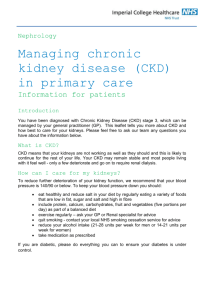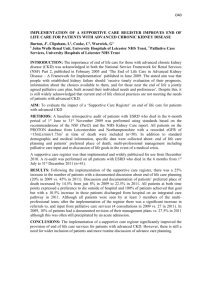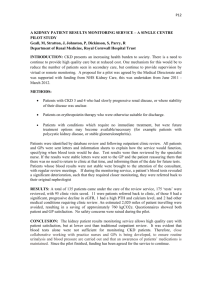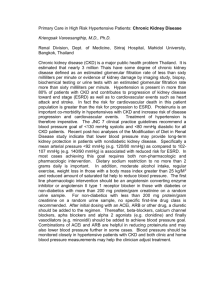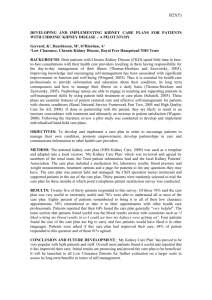nhs outcomes * preventing people from dying prematurely
advertisement
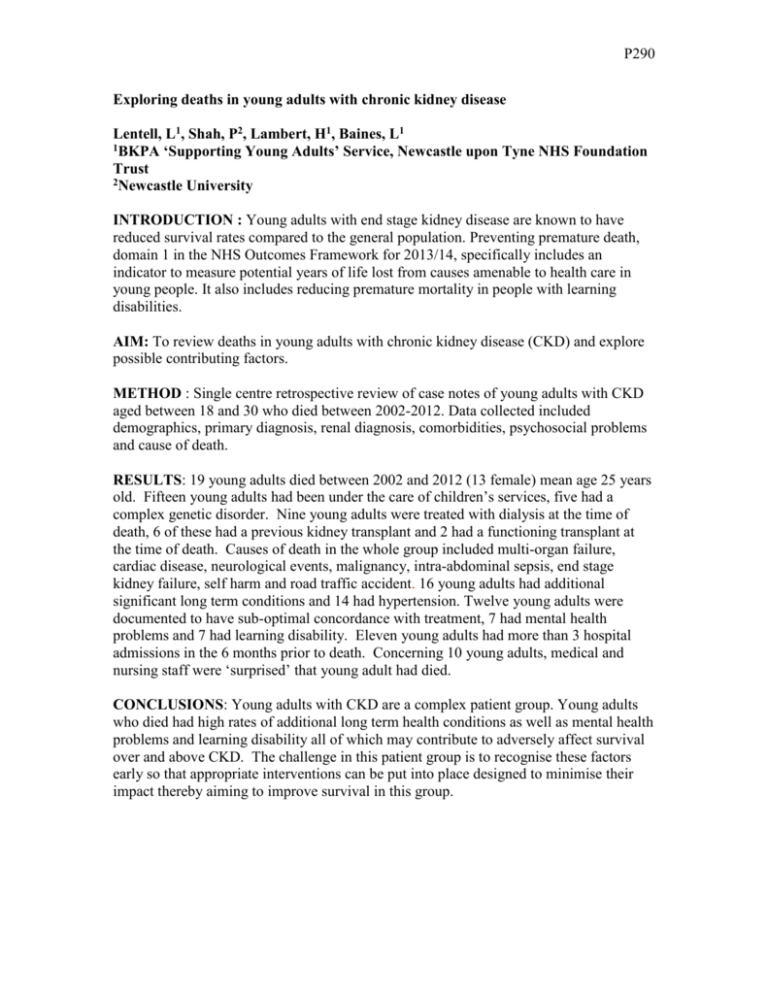
P290 Exploring deaths in young adults with chronic kidney disease Lentell, L1, Shah, P2, Lambert, H1, Baines, L1 1BKPA ‘Supporting Young Adults’ Service, Newcastle upon Tyne NHS Foundation Trust 2Newcastle University INTRODUCTION : Young adults with end stage kidney disease are known to have reduced survival rates compared to the general population. Preventing premature death, domain 1 in the NHS Outcomes Framework for 2013/14, specifically includes an indicator to measure potential years of life lost from causes amenable to health care in young people. It also includes reducing premature mortality in people with learning disabilities. AIM: To review deaths in young adults with chronic kidney disease (CKD) and explore possible contributing factors. METHOD : Single centre retrospective review of case notes of young adults with CKD aged between 18 and 30 who died between 2002-2012. Data collected included demographics, primary diagnosis, renal diagnosis, comorbidities, psychosocial problems and cause of death. RESULTS: 19 young adults died between 2002 and 2012 (13 female) mean age 25 years old. Fifteen young adults had been under the care of children’s services, five had a complex genetic disorder. Nine young adults were treated with dialysis at the time of death, 6 of these had a previous kidney transplant and 2 had a functioning transplant at the time of death. Causes of death in the whole group included multi-organ failure, cardiac disease, neurological events, malignancy, intra-abdominal sepsis, end stage kidney failure, self harm and road traffic accident. 16 young adults had additional significant long term conditions and 14 had hypertension. Twelve young adults were documented to have sub-optimal concordance with treatment, 7 had mental health problems and 7 had learning disability. Eleven young adults had more than 3 hospital admissions in the 6 months prior to death. Concerning 10 young adults, medical and nursing staff were ‘surprised’ that young adult had died. CONCLUSIONS: Young adults with CKD are a complex patient group. Young adults who died had high rates of additional long term health conditions as well as mental health problems and learning disability all of which may contribute to adversely affect survival over and above CKD. The challenge in this patient group is to recognise these factors early so that appropriate interventions can be put into place designed to minimise their impact thereby aiming to improve survival in this group.


